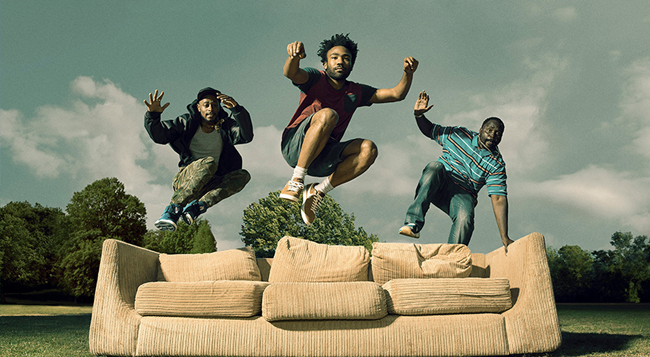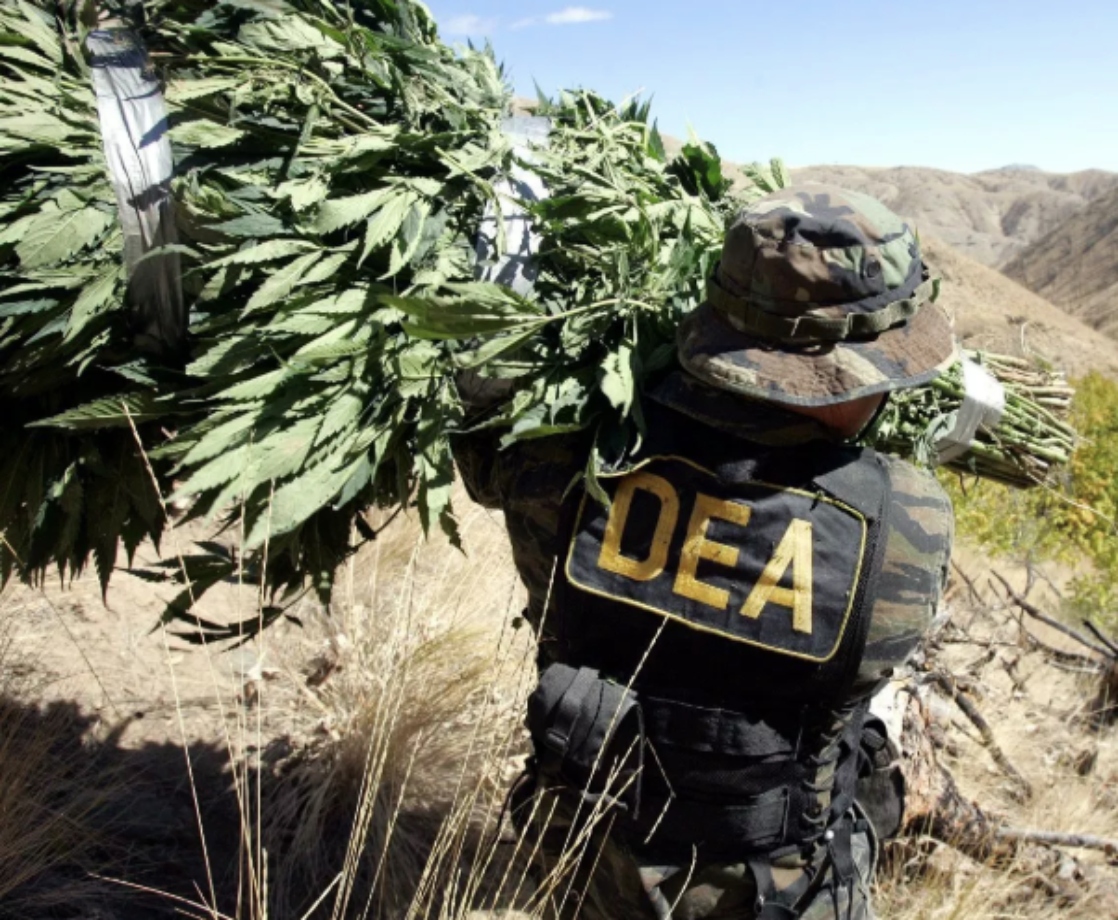There are too many TV shows. This has been the refrain of television critics and the common man alike. Gone are the days of everyone being caught up on Mad Men and Breaking Bad and any other prestige approved shows that people might talk about around the office espresso machine. Metacritic has 100 shows at over a 65 from this year, which, by Metacritic’s stringent standards, is an embarrassment of riches.
Some shows toward the bottom of that list appear on many critics’ best-of lists, including Daredevil, Quarry, and Baskets. Though there are a few constants, no two top-10 lists are the same in the Silver Age of Television. With that in mind, feel free to assume that if your favorite show isn’t on here, it’s because I didn’t see it. Though, it’s just as likely that I saw it, and just didn’t like it as much as you.
10. Black Mirror
Like all anthology shows, the third season of Black Mirror was uneven. But, the episodes that hit the mark were among the best television of the year. In an era of self-driving cars and drone delivery services, science fiction quickly races towards becoming science fact. Black Mirror manages to ride the line between our dystopian future and our dystopian present with incredible ease.
“Hated in the Nation” offers a complex, tech-driven mystery that Law & Order writers could only dream of inventing. “Men Against Fire” looks at old ideas about warfare and forces them to their logical, painful conclusion (the last shot of the episode still haunts me, months later).
The jewel of this season of Black Mirror and maybe of this year in television was “San Junipero.” In a rare optimistic episode, the series explores ideas about consciousness, the afterlife, and true love in an hour of absolutely beautiful television. To say much of anything about the episode would spoil the experience, so suffice it to say you will never hear Belinda Carlisle’s “Heaven Is a Place on Earth” the same way ever again.
9. London Spy
In a year where people went wild for British imports like The Night Manager, The Crown, and Fleabag, the most underrated was London Spy. Since the show received its American premiere in January (and Britain got the show at the tail end of last year), many have overlooked or forgotten this brilliant miniseries. The show lures you in by being ostensibly about two young lovers, one of whom goes mysteriously missing. Ultimately, the show is really about the relationship between the bereaved partner (Ben Wishaw) and his older friend Scottie (Jim Broadbent).
Through Scottie, who was drummed out of government service for being gay years ago, we explore how far the LGBTQ community has come in England and how far it has yet to go. In many ways, Scottie’s life was severely hindered by draconian attitudes of the government. The AIDS epidemic hangs over the show like a ghost with business that will never, ever be finished. Broadbent’s Scottie drips with pain; this deep, enduring pain amplifies the struggles of his young friend. Though there is enough espionage intrigue to keep you interested in London Spy, it is the raw emotional moments that make this British import worth hunting for.
8. Atlanta
Atlanta isn’t perfect, but its imperfections are what makes it great. Donald Glover claimed he was making “Twin Peaks for rappers” when he spoke to critics earlier this year, and though he didn’t quite deliver on that lofty goal, he made something that is as thoughtful and relevant as anything on TV. Atlanta is structured like a sitcom in which an episode of Louie could break out at any second. This allows for meditations and digressions on issues that matter while still telling stories that you won’t find anywhere else on television. In some ways, this is an improvement on Louie, because between the moments of absurdity, we really get to know the characters, and their struggles feel real, even if the premise is absurd.
The greatest moments of the season belong to Brian Tyree Hill (Alfred “Paper Boi” Miles) and Keith Stanfield (Darius), who Glover ably assists as the straight man. One problem with the meandering nature of the show is that when episodes deprive us of their comic voices, they are sorely missed. When the balance of earnest character moments and comic absurdity is just right, though, Atlanta earns its critical adoration. The real issues discussed in the prison episode “Streets on Lock,” the social media commentary of “The Streisand Effect,” and the non-stop racial commentary of “Juneteenth” stand among the year’s best, most affecting episodes of TV.
Like its clear influence, Louie, Atlanta can be messy, but that messiness often allows for brilliant moments of artistry.
7. Westworld
You either loved Westworld or you hated it. Living in a time where there is so little watercooler television conversation, this is an achievement to be lauded. Critics of Westworld take aim at the show’s approach to character. While that critique is in many ways reasonable, it misses what the show is trying to do. As the robots gain self-awareness, they realize that “character” is a construct. It’s what we and others make it. The joy of the finale wasn’t just the perfect landing for numerous plot threads that seemed like they might dangle on into next season. Part of the joy was watching the Man in Black (Ed Harris) realize that his narrative, the story he told himself, amounted to nothing more than a little dirt over an empty grave. Real humans, it seems, create characters for themselves as readily as fake ones.
If Westworld, with its beautiful sets, masterful performances, and clean plotting, wants to tell the story of the stories we tell ourselves, it should be allowed that. If you didn’t enjoy the journey of Westworld, there are plenty of other shows out there. I’ll be here waiting, scrolling through Reddit for another clue as to what might happen next.
6. Vice Principals
Like Eastbound & Down before it, Vice Principals didn’t quite catch the zeitgeist like HBO’s other comedies Silicon Valley, Veep, and Insecure. That’s too bad, because it was the funniest. Walton Goggins (Lee Russell), Danny McBride (Neal Gamby), and Kimberly Hebert Gregory (Dr. Belinda Brown) made for the best comic trio on television and it wasn’t close. After seeing Goggins in dramatic turns in Justified and The Hateful Eight, he honed his focused intensity to counteract McBride’s buffoonery in a way that made every scene they shared electric and hilarious. Gregory played Brown’s slow unraveling with a brilliance that swung from understated to powerful with ease. As the three of them bounced from one classic high school scenario to another, from colonial field trips to homecoming games, knives sharpened for each other to fall on, the stakes and the jokes got better and better.
It is also a shame that the show didn’t get more attention because Vice Principals had more to say about current events than most other shows on television. The plot, which follows two undeserving, mediocre white men as they undo an overqualified African-American woman, obviously has resonance. Perhaps the reason that the show didn’t get more critical attention is because the show’s answer for their behavior is both simple and correct. Why did they do it? Because they’re assholes who wanted a little more power.
5. Penny Dreadful
The final season of Penny Dreadful solidified the Showtime drama as the perfect show for this period of TV. This so-called Silver Age, many critics have pointed out, is fertile ground for imperfect shows that draw a dedicated audience. Penny Dreadful was exactly that. Many shows have put vampires, werewolves, and witches on-screen together, but none that I have seen managed to quote romantic poetry and wax philosophical on the beauty of orchids along the way.
The series followed the exploits of Vanessa Ives (Eva Green), a woman haunted by demons who nonetheless never stopped trying to see the beauty in the world, as she navigated an industrialized London squeezing out the last bits of beauty in an already cruel world. This story was her story, and the showrunner and network smartly agreed that when her story was concluded, the show should be too.
Green gave the best performance on television this side of American Crime Story as Vanessa Ives, and it is a shame she isn’t getting more recognition for her work. Alongside a number of Brits more familiar to the West End than HBO, like the phenomenal Royal Shakespeare Company veteran Rory Kinnear, the cast was perfectly united in creating a show that was as emotional and thoughtful as a great poem. There were moments of absurdity. There were plotlines that didn’t quite work. But, when a show so dedicated to finding moments of beauty in the madness arrived at scenes that perfectly combined the lovely and the tragic, there was no better show on television.
4. Game of Thrones
Even if many critics have left it behind for newer and shinier toys, Game of Thrones remains one of the best shows on television. This installment of George R.R. Martin’s world was even more fulfilling than most because from start to finish you had the feeling we were finally getting somewhere. Siblings are finally reunited. A certain blonde queen finally got her ass on a boat. A bunch of nothing characters who have been playing petty politics in King’s Landing finally got got. It may all seem so distant now, but recall that “Hold the door,” the Battle of the Bastards, and Cersei’s explosive decision all happened in the same season, and tell me this wasn’t one of the best seasons of a great show.
As Game of Thrones hurtles towards its conclusion, many of the earlier charges against it have been resolved. Characters who were “off the board” for seasons are coming back into the heat of the action. Plot devices that think piece writers deemed “problematic” have been redeemed as surely as Sansa has fed her enemies to the dogs. Not only did this season of Game of Thrones give us what we’ve been waiting for, it also left us waiting breathlessly for what’s to come.
3. Documentary Now!
Documentary Now! is the most unique show on television. Each week, Fred Armisen and Bill Hader create a loving, thoughtful parody of a famous documentary, often accurate down to the film stock and verbal tics of their subjects. In their second season, the series stretched past its previous creative high watermark, often creating a product that was, oddly, as emotionally affecting as their subject.
“Juan Likes Chicken and Rice” is so loving a parody of Jiro Dreams of Sushi that the crew actually shot on location in Colombia to recreate the foodie exoticism of the Jiro. For their send-up of The Kid Stays in the Picture, the team thought of dozens of fake movies, fake actors, and fake stories, creating an alternate timeline for Hollywood that was hilariously believable. The passion for these films is so evident in the craft of Documentary Now! that you might find yourself digging through Netflix for the original films as soon as you finish an episode.
2. Baskets
In a year of so many great comedies, everyone had a pet favorite that they’ve pinned towards the top of their year-end list. For some it was High Maintenance. For others it was You’re the Worst. For me, it was Baskets. This show should be required viewing for anyone who has ever attempted to create art, and even for anyone who has chased a dream. Zach Galifianakis’ Chip Baskets wants nothing more than to be a clown. The hard realities of life brought him back from his study at an elite clowning school in France to splitting his time between Arby’s and rodeo clowning in his hometown of Bakersfield, Calif.
Everyone in Baskets has real, meaningful dreams that they chase with absurd enthusiasm, and the results are consistently painful and hilarious. Louie Anderson’s performance as Chip’s mother earned him a richly deserved Emmy. Ernest Adams’ turn as Eddie, an aging cowboy always looking for one last journey, is surprisingly affecting. Martha Kelly’s deadpan Martha Brooks provides moments of odd optimism even though life is always throwing her yet another rough curveball.
Two episodes of Baskets have remained seared in my mind for months. In “Easter in Bakersfield,” Chip and his mother spend the holiday at a casino, and in “Cowboys,” Eddie takes Chip and Martha on a desert quest. Both episodes are about people trying to recapture something they’ve lost in a world where the only things they have to look forward to besides a trip to Costco are vain attempts at recapturing lost dreams. So much of television is about beautiful people getting what they want. Baskets is a moving portrait of the broken and beaten down trying to laugh as they grasp for the shiny, lovely things just out of reach.
1. The People v. O.J. Simpson: American Crime Story
If the Golden Age of TV is over, no one told the creators of American Crime Story. Though there was a lot of good television this year, this season stood head and shoulders above the rest. With enough distance from the O.J. Simpson trial to give us some objectivity, but close enough to it that issues that were relevant then are just as relevant today, the series feels oddly perfect for 2016. The back-to-back episodes of “The Race Card” and “Marcia, Marcia, Marcia” address race and gender respectively with more thought, more nuance, and more care than some doctoral theses, but also resulted in two of the best hours of TV in memory. It turns out this story was also the ideal vehicle to address fame, the media, wealth, power, and an endless array of other issues that exert their will over modern life.
It is hard to single out individual achievement in this series because it was so great. While Sarah Paulson (Marcia Clark) gave the best performance on TV, Sterling K. Brown (Christopher Darden) and Courtney B. Vance (Johnnie Cochran) were also justly rewarded for their work on the show. Even David Schwimmer (Robert Kardashian) and John Travolta (Robert Shapiro) delivered unexpected brilliance with their performances. It’s equally difficult to praise a particular directorial choice or script because each episode stood on its own but worked seamlessly with the broader story.
Not only was The People v. O.J. Simpson the best television season of the year, it is also one of the best of all time. This season will stand beside the greatest seasons of Mad Men, Breaking Bad, and The Wire among the best television ever made. Great TV not only entertains but feels like the expression of a particular moment. This show was as much about 2016 as it was about 1994, and it deserves to be viewed every year by new audiences hoping to be entertained and hoping to understand what the world was, what it is today, and what we hope it can become.











